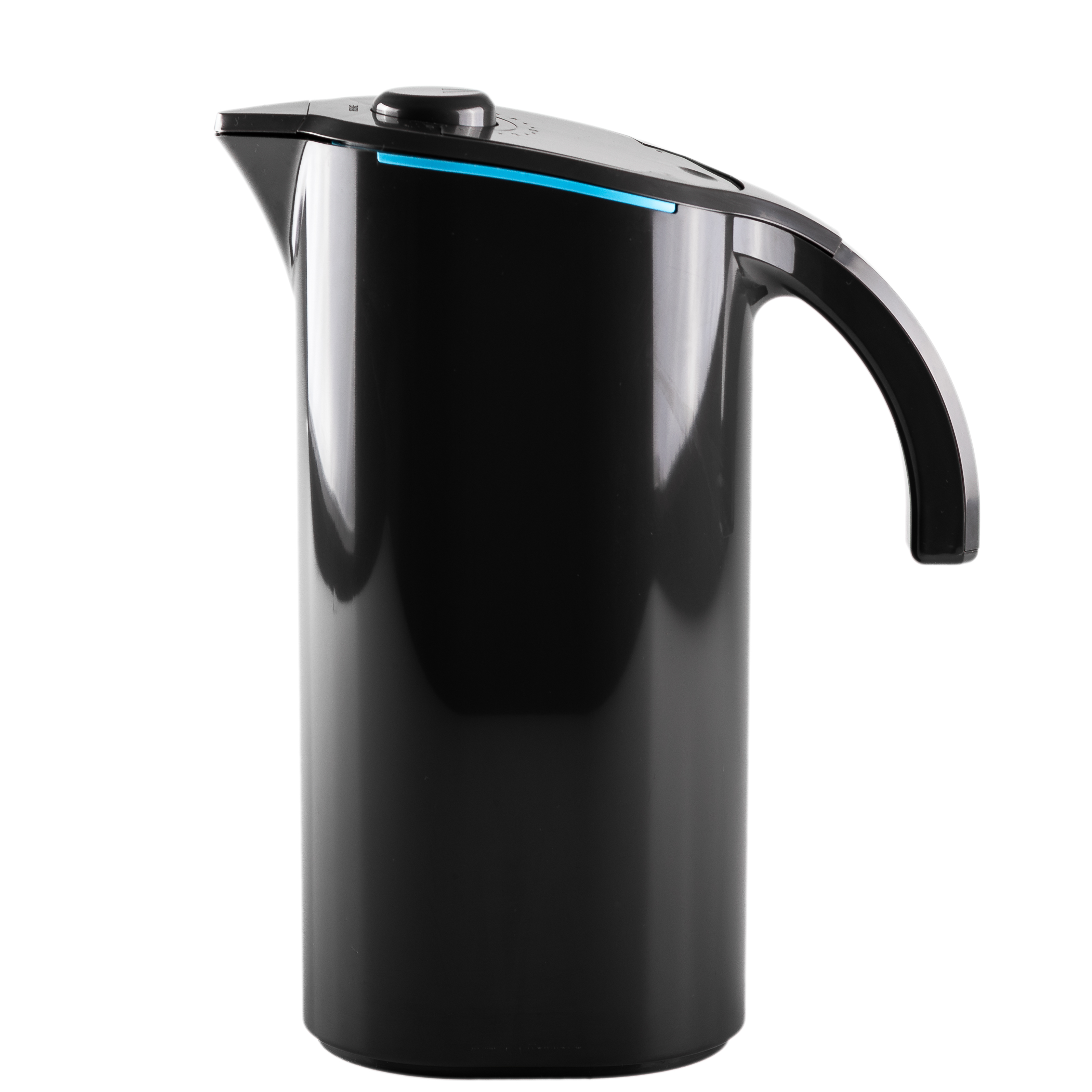Breakdown of Water Across the US
Does water have a flavor? Some people claim that all water tastes the same, even Aristotle once said, "The natural substance water per se tends to be tasteless.” On the other hand, there are those who maintain passionate opinions, and have a clear preference on water brands. When discussing this topic with them, you may even be subjected to an impassioned lecture — often using ghastly synonyms — on what their least favorite water tastes like. However, in the coffee industry, we know the affects the flavor and hardness of your brew water can have on the quality of your coffee and the damage it can do to your equipment. There is a set standard, developed by SCAA, that your brewing water should fall under, and it can be found here.
Thankfully, here in Louisville, Kentucky, we have pretty tasty tap water, even being ranked as #1 in the US for cleanest drinking water. Kentucky’s water in general has been given the unique label of “Kentucky Limestone Water” due to the fact that it's chock-full of good minerals that are ideal for making bourbon. However, these minerals leave our water classified as hard which may result in negative effects on the flavor of our coffee and condition of our equipment.
Water varies across the country, some areas having soft water and others hard. Both have their pros and cons, but if you’re wanting the ideal water for your coffee, chances are you won’t get it right out of the tap. We’ve put together a run-through of water hardness across the US and how it could affect your coffee equipment as well as provide a solution to your home coffee-water needs!
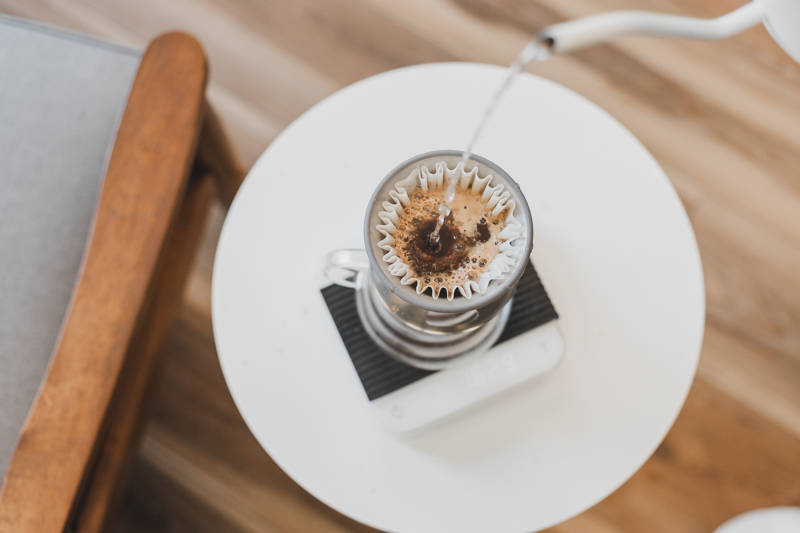
Water Hardness
Put simply, the hardness of your water is the measure of dissolved calcium and magnesium and are usually measured in parts per million, milligrams per liter, or grains per gallon. There are some levels of minerals in all of our drinking water, and according to WHO, hard water has no known adverse health effects, in fact it can even be a good source of magnesium and calcium. Coffee and coffee equipment happen to be a little more sensitive however, and although they have their benefits, too much or too little can have adverse effects.
The water out of your tap falls somewhere on the scale from hard or soft, and depending on which, the flavor of your coffee may differ. In areas with hard water, you may find that your brews come out as slightly bitter no matter how many variables you change. Conversely, soft water will often leave your coffee tasting flat, and neither of which are desirable if you’re looking to enjoy the unique flavor notes of the particular coffee you’re brewing.
Flavor is definitely a big factor, but what about the equipment you brew with? It was likely, at the least, a small investment — whether it’s a pour over set up, a drip coffee maker, or an espresso machine. When you’re dealing with particularly hard water, you run the risk of scale forming on your equipment. This is simply a build up of the calcium and magnesium that evaporates from the water under conditions of extreme heat or pressure. Thankfully, descaling is an easy process that is recommended every 3 months in order to maintain optimal water flow, and if you put it off for too long your machine may stop working all together.
Unfortunately, particularly soft water is not any better for your equipment. In fact, soft water or distilled water with no dissolved solids may actually lead to irreversible corrosion.
Obviously water plays a huge role in your coffee, and it’s useful to have at least a basic understanding of what kind of water you’re working with in your geographical area. Below is a general breakdown of water hardness across the US.
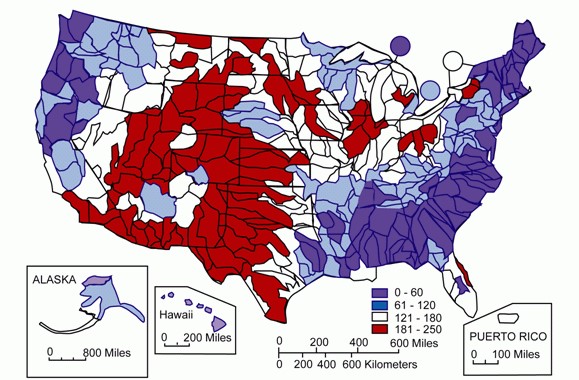
Water is typically broken down into three or four levels of water hardness — very soft water (0-50PPM), moderately soft water (61-120 PPM), moderately hard water (121-180 PPM), very hard water (180+ PPM). Different states fall into one of these four categories, but it's based on an overall average. It's important to remember each city and water supply differs, so it’s important to check your home or business's water before deciding a course of action.
Taking the cake of the hardest water in the US are Indianapolis, IN; Las Vegas, NV; Minneapolis, MN; Phoenix, AZ; San Antonio, TX; and Tampa, FL. Notice that these cities are spread out across the country, and some of the states they reside in don’t even fall under “Hard Water States.”
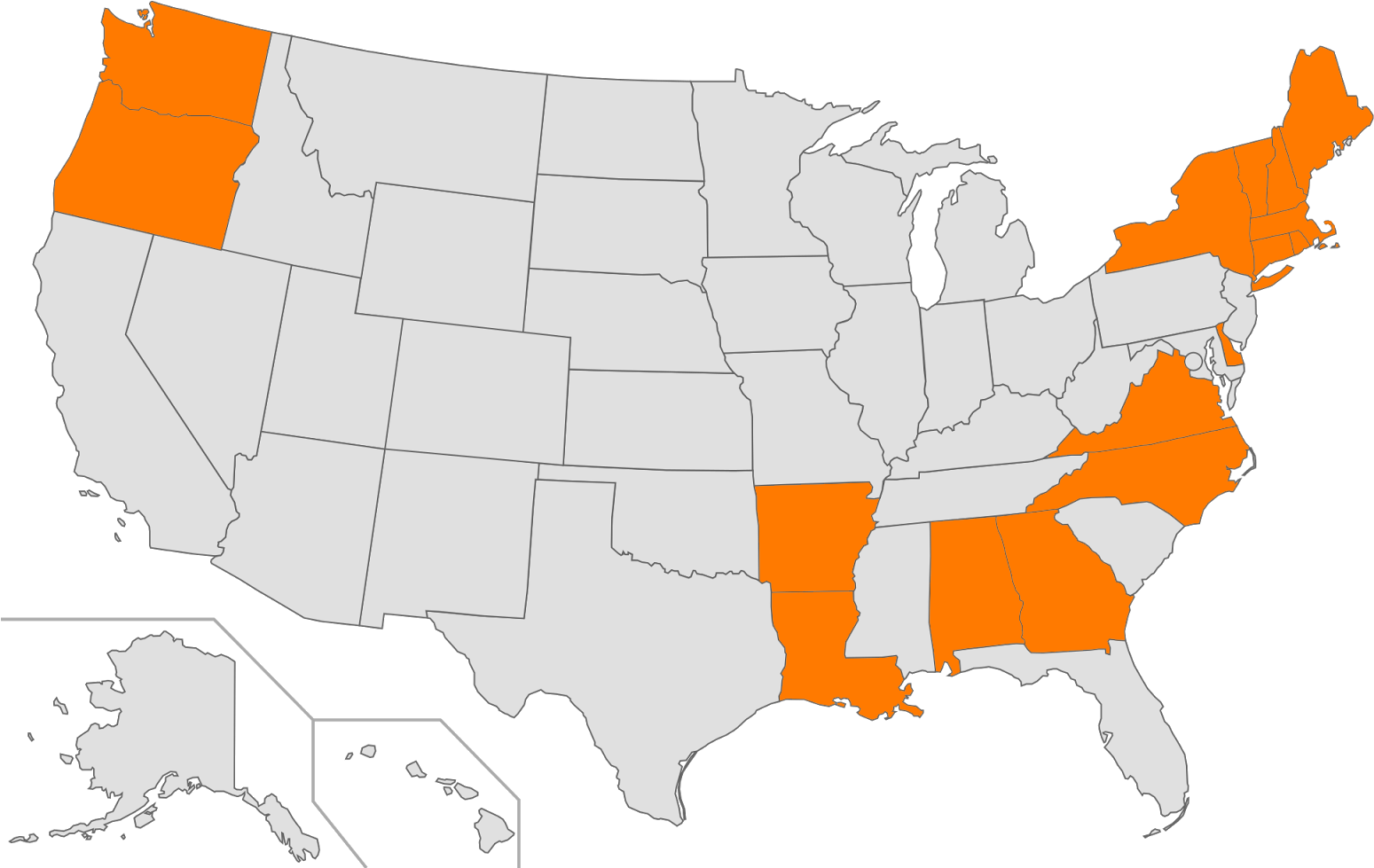
Our “Very Soft Water” states are typically found in parts of the Southeast, Northeast and Northwest. Using water in these areas can leave your coffee tasting flat and your machine is susceptible to corrosion. The water would benefit from additional minerals to be added. The states are as follows:
- Washington
- Oregon
- Arkansas
- Mississippi
- Louisiana
- Georgia
- Alabama
- North Carolina
- South Carolina
- Delaware
- Connecticut
- Vermont
- New Hampshire
- Massachusetts
- New York
- Maine
- Rhode Island
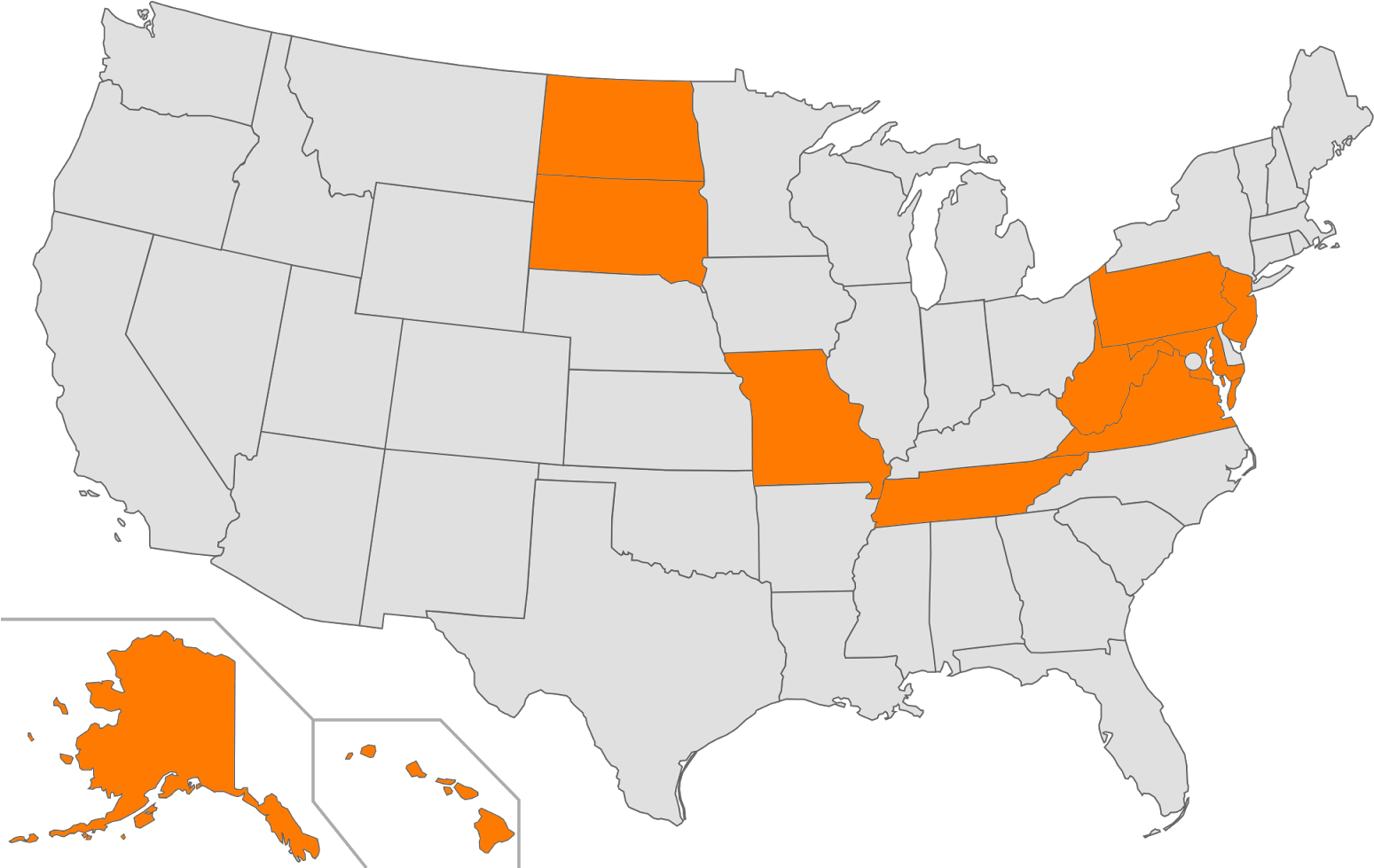
The “Moderately Soft Water” states do not have much of a geographical pattern, and interestingly, one of these states is home to a city with some of the hardest water in the country.
- Hawaii
- Alaska
- North Dakota
- South Dakota
- Minnesota
- Missouri
- Tennessee
- West Virginia
- Pennsylvania
- Maryland
- New Jersey
- Virginia
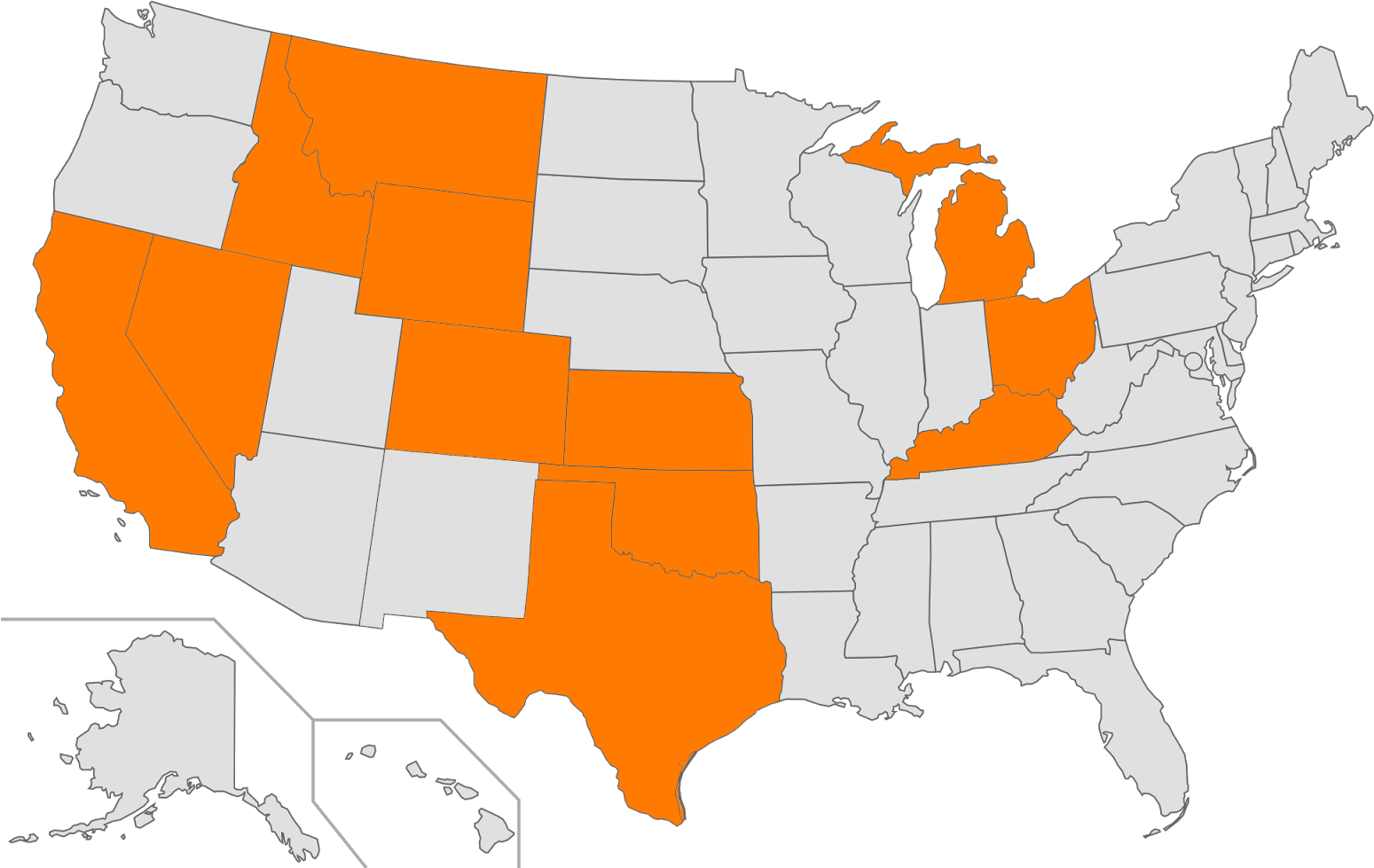
"Moderately Hard Water" states have a fair amount of minerals in their water and often require a filtration system. Like the moderately soft water states, they don't have a set geographical pattern, however they do these reside heavily in the central portion of the US.
- Nevada
- Idaho
- Montana
- Kansas
- Oklahoma
- Texas
- Michigan
- Kentucky
- Ohio
- California
- Colorado
- Wyoming
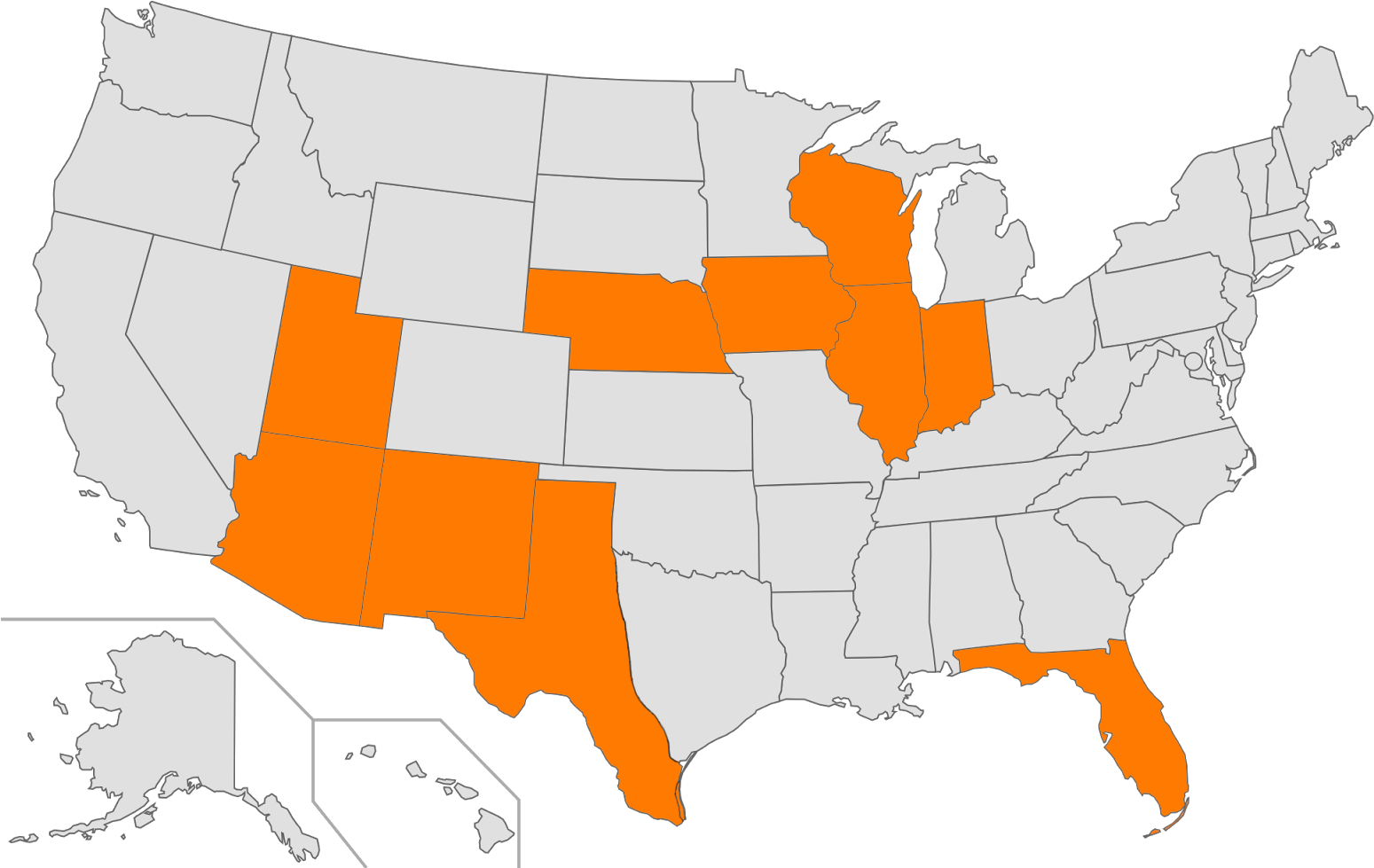
Lastly, the “Very Hard Water” states generally always benefit from water softener. In a larger operation, like a cafe or coffee shop, something like an RO system with mineral addition proves beneficial. This strips the water of all minerals and replenishes it with the appropriate amount of minerals. These states heavily reside in the Southwestern portion of the country.
- New Mexico
- Utah
- West Texas
- Wisconsin
- Indiana
- Florida
- Arizona
- Illinois
- Nebraska
- Iowa
So what's the solution?
For home brewing there is an easy solution for getting cafe quality water, and it can come straight from the faucet regardless of what part of the country you live in. As stated before, the water hardness by state is an average, so it’s very important to test your water at home. Thankfully, the Peak Water Pitcher Starter Pack provides all the equipment you need to get your water tested, treated, and ready to brew.
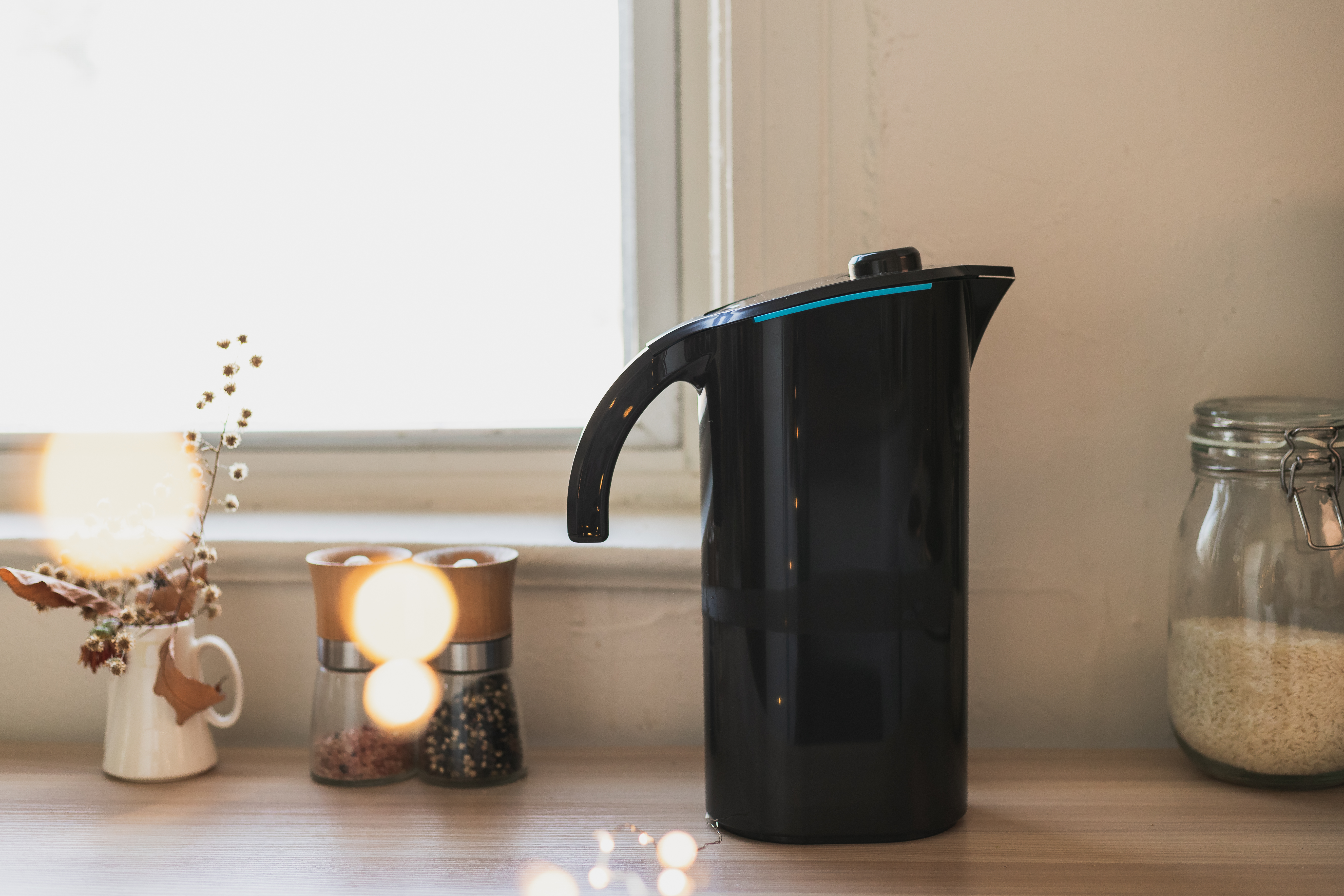
The Peak Water Pitcher Starter Pack includes two testing strips and an easy-to-read color chart that corresponds with settings on the dial. Once you know the hardness of your water, you can adjust the correct setting on the dial.
As long as your water falls in the acceptable range of hardness, there is here is room to develop your own preference of water for coffee. Some coffees, like dark roasts, benefit from slightly softer water that brings out the sweetness, where a lighter roasts may shine with slightly harder water that brings out the fruitier and more complex notes. The Peaks dial gives you the freedom to make minor adjustments with its stepless adjustment, allowing you to discover what water makes your favorite coffee shine.
The dial connects to one of Peak’s recyclable and regenerable filters that utilize a dual chamber design that contains a dual ion resin with the capability of removing all of the minerals in your water, but the adjustment dial, depending on the setting, allows the desired amount through to the second chamber. This chamber only contains carbon and removes any unwanted organic compounds while allowing the desired calcium and magnesium through.
Water is one of the more complicated variables of coffee, but it is crucial in the flavor and upkeep of your equipment. If you’re not interested in optimizing your tap water for coffee, there are options like Third Wave Water and Global Customized Water that turn a gallon of distilled or RO water into perfect water for coffee. If you’re looking to install a full system into your home or cafe, get your water tested, and check out our water options. We'd love to know more about your water and any questions you have about optimizing your water at home, so drop them in the comments below! Cheers!

